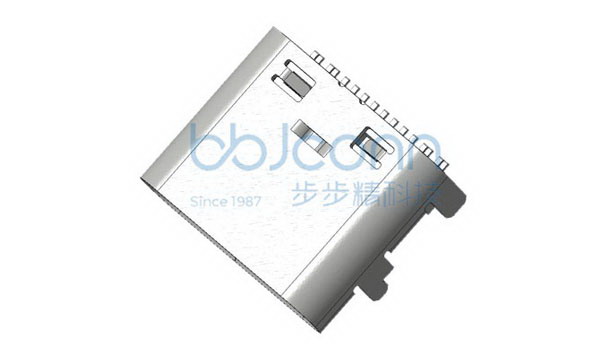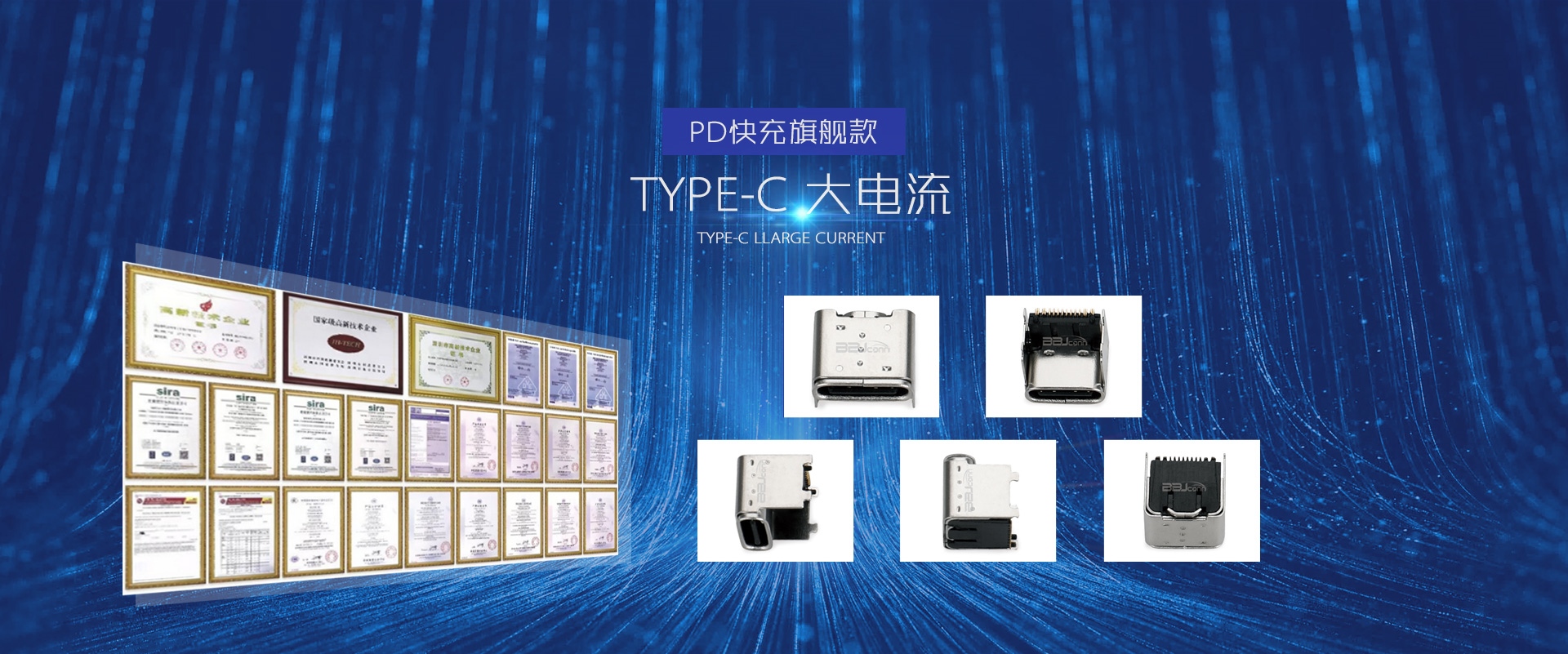Analysis of the Importance and Requirements of Type-C Connector Film Thickness Testing
In modern electronic equipment,Type-C connectorBecause of its efficient, bidirectional transmission and convenient design, it has become a widely used standard interface. However, with the continuous advancement of technology, the manufacturing quality and reliability of Type-C connectors have attracted more and more attention. Especially in Type-C connectors In the production process of Type-C connectors, film thickness testing plays an important role as a key quality inspection method. This article will provide an in-depth analysis of the requirements and importance of Type-C connector film thickness testing to help better understand this The role of the testing process in ensuring product quality.
Basic requirements for Type-C connector film thickness testing
Type-C connector film thickness testing mainly involves the thickness measurement of the connector surface coating or metal film. For Type-C connectors, the quality of the surface coating or metal film directly affects its electrical performance, durability and oxidation resistance. capability. Therefore, film thickness testing is not just a simple measurement process, it requires strict operational requirements. First of all, Type-C connector film thickness testing requires the use of high-precision testing instruments, such as X-ray fluorescence (XRF) measuring instruments, microscope measurement methods, etc. These tools can accurately measure connectors The thickness of a metal layer or coating to ensure it meets design specifications.
Secondly, the Type-C connector film thickness test needs to be performed at multiple locations to ensure the uniformity of the coating. There may be slight unevenness on the connector surface, so multi-point measurements are required to ensure the accuracy of the test results.
Impact of Type-C connector film thickness testing on performance
Type-C connector film thickness testing is not only a quality control process, it plays a vital role in the performance of the connector. The coating or metal film of Type-C connector is usually composed of chromium, nickel and other metal elements , the main function of these materials is to prevent oxidation and corrosion of the connector during use, thereby ensuring its good electrical transmission performance. If the coating is too thin, it will easily lead to poor contact or oxidation, affect the signal transmission stability, and may even cause Failure of the connector. On the contrary, if the coating is too thick, it may increase the cost and even affect the plugging and unplugging life of the connector.
Therefore, through Type-C connector film thickness testing, manufacturers can ensure that the coating thickness is within a suitable range, which can not only meet corrosion resistance, wear resistance and other requirements, but also avoid unnecessary cost waste.

Technical challenges in film thickness testing of Type-C connectors
There are some technical challenges in testing the film thickness of Type-C connectors, mainly reflected in how to accurately measure the coating thickness on small connectors. Due to the small size of the Type-C connector itself, the thickness of the film layer is often only in the micron level , so how to perform high-precision measurements at such a tiny scale is a technical problem that needs to be solved.
In addition, the material properties of different coatings vary greatly, and different testing methods may need to be selected for different materials. For example, for nickel plating and gold plating layers, different detection technologies may need to be used to improve the accuracy of measurement. Technically These challenges require engineers to have high professional knowledge and experience in the film thickness testing process.
Quality control standards for film thickness testing of Type-C connectors
In order to ensure the effectiveness of Type-C connector film thickness testing, manufacturers need to operate in strict accordance with relevant international quality control standards. Currently, commonly used international quality control standards include IPC-2221A, IEC 60950, etc., these standards are Type-C The design and manufacturing of -C connectors provide clear technical requirements, especially strict regulations on film thickness control.
In addition, some industry organizations and certification bodies have also developed special standards for electronic connector film thickness testing. When manufacturers conduct Type-C connector film thickness testing, they must ensure that the testing process complies with these standards to ensure that the product can successfully pass certification and meet the quality requirements of the market.
Future development trends of Type-C connector film thickness testing
With the continuous advancement of technology, the design and manufacturing of Type-C connectors are also developing towards higher precision, stronger anti-interference, and longer service life. Film thickness testing is indispensable in connector production. In part, there will be more challenges in the future. For example, with the emergence of smaller and more complex connector designs, how to conduct film thickness testing without damaging the product will become a big problem.
At the same time, automated and intelligent film thickness testing equipment is also constantly developing. By introducing artificial intelligence (AI) and big data technology, film thickness testing can be more efficient and accurate, and can detect potential quality problems in a timely manner. This kind of automated testing The popularization will greatly improve the overall quality control level of Type-C connector production.
Type-C connector film thickness testing is a key link to ensure product quality and improve service life and reliability. Through precise film thickness control, it can not only ensure the electrical performance and durability of the connector, but also reduce the risk of unqualified film layers. risk of failure. In the future, with the continuous innovation of technology, With the application of new and automated test equipment, the film thickness test of Type-C connectors will become more efficient and accurate, thus promoting the quality improvement of the entire industry. Therefore, manufacturers should attach great importance to the film thickness test link to ensure that each Type-C connector -C connectors all meet high standards of quality requirements.
